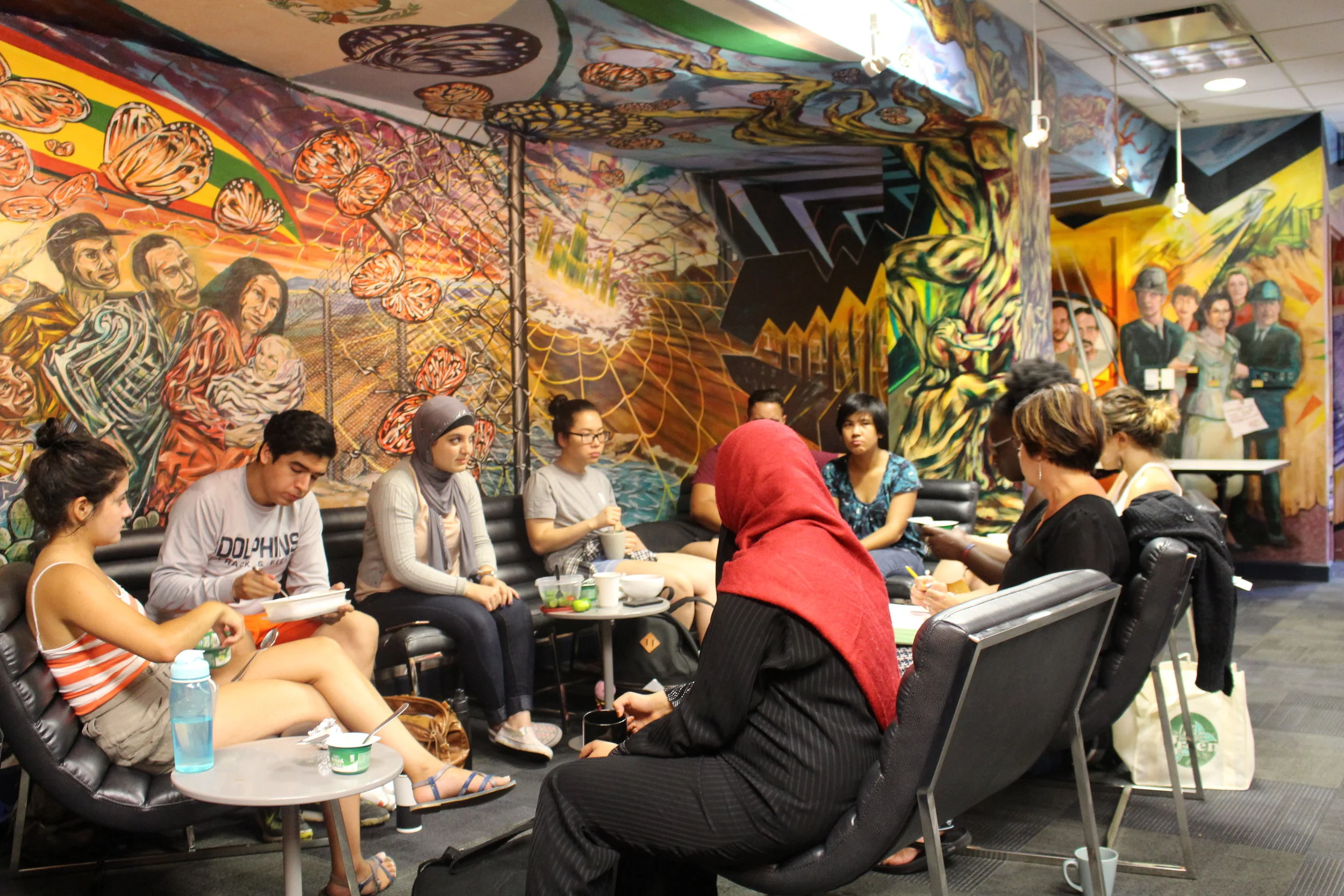Our book discussion library
Fall 2015
“This unique and insightful text offers an exploration of the origins and subsequent development of the concept of ‘just sustainabilities ‘. Introducting Just Sustainabilities discusses key topics such as food justice, sovereignty and urban agriculture; community, space, place (making) and spatial justice; the democratization of our streets and public spaces; how to create culturally inclusive spaces; intercultural cities and social inclusion; ‘green collar jobs’ and the just transition as well as alternative economic models such as coproduction. ”
Spring 2016
“Chasing Chiles looks at both the future of place-based foods and the effects of climate change on agriculture through the lens of the chile pepper - from the farmers who cultivate this iconic crop to the cuisines and cultural traditions in which peppers play a huge role... Chiles are delicious, dynamic, and very diverse - they have been rapidly adopted, adapted, and assimilated into numerous world cuisines, and while malleable to a degree, certain heirloom varieties are deeply tied to place and culture - but now accelerating climate change may be scrambling their terroir.”
Fall 2016
“Environmental justice and sustainability have evolved over the past two decades to provide new and exciting directions for public policy and planning, but the relationship between their movements has traditionally been uneasy. What might, at first glance, seem like an obvious case for coalition is fraught with ideological and other concerns. How has it come to this, and how can we move forward?... This book is vital to the efforts of community organizers, academics, policymakers, and everyone interested in more livable communities.”
Spring 2017
“Forget everything you think you know about global warming. The really inconvenient truth is that it’s not about carbon - it’s about capitalism. The convenient truth is that we can seize this existential crisis to transform our failed economic system and build something radically better... Klein exposes the myths that are clouding the climate debate. We have been told the market will save us, when in fact the addiction to profit and growth is digging us in deeper every day... Climate change, Klein argues, is a civilizational wake-up call, a powerful message delivered in the language of fires, floods, storms, and droughts. ”
Spring 2018
“Bringing together insights from studies of environmental justice, sustainable agriculture, critical race theory, and food studies, Cultivating Food Justice highlights the ways race and class inequalities permeate the food system, from production to distribution to consumption. The studies offered in the book explore a range of important issues, including agricultural and land use policies that systematically disadvantage Native American, African American, Latino/a, and Asian American farmers and farmworkers; access problems in both urban and rural areas; efforts to create sustainable local food systems in low-income communities of color; and future directions for the food justice movement. These diverse accounts of the relationships among food, environmentalism, justice, race, and identity will help guide efforts to achieve a just and sustainable agriculture.”
Spring 2019
“Robin Wall Kimmerer has spent a career learning how to ask questions of nature using the tools of science. As a Potawatomi woman, she learned from elders, family, and history that the Potawatomi, as well as a majority of other cultures indigenous to this land, consider plants and animals to be our oldest teachers. In Braiding Sweetgrass, Kimmerer brings these two lenses of knowing together to reveal what it means to see humans as “the younger brothers of creation.” As she explores these themes she circles toward a central argument: the awakening of a wider ecological consciousness requires the acknowledgement and celebration of our reciprocal relationship with the world. ”
Spring 2020
“Every so often a book comes along that can dramatically change, or elevate, one’s thinking about a global problem. Much like Naomi Klein’s books, Todd Miller’s Storming the Wall is such a book and deserves far more attention and discussion.”
Spring 2021
“Hunger and poverty are perpetuated by undemocratic systems of power. Now, this great new resource lifts the veil hiding the history of dispossession and unequal land access in the US.”
Spring 2023
“The book investigates these questions through the construct of the immigrant-food nexus, which encompasses the constantly shifting relationships of food systems, immigration policy, and immigrant foodways. The contributors, many of whom are members of the immigrant communities they study, write from a range of disciplines. Three guiding themes organize the chapters: borders—cultural, physical, and geopolitical; labor, connecting agribusiness and immigrant lived experience; and identity narratives and politics, from “local food” to “dietary acculturation.””
Spring 2023
“A mosaic that honors the complexity of the climate crisis like few, if any, books on the topic have done yet ... a feast of ideas and perspectives, setting a big table for the climate movement, declaring all are welcome.””
Spring 2024
““The works in this annual anthology are lyrical, emotional, moving, and insightful—proof that long-form science journalism boasts some of our best writers...These pieces challenge us to look deeper and to understand better, to see the beating human heart in the soul of science.””
Spring 2025
“This is a thoroughly engaging, holistic, and vibrant book. Every chapter made me hungry for more. Many plant knowledge treatises are thin soup, but this is hearty and nourishing because it has all the elements that Western scientific plant teachings leave out.”













